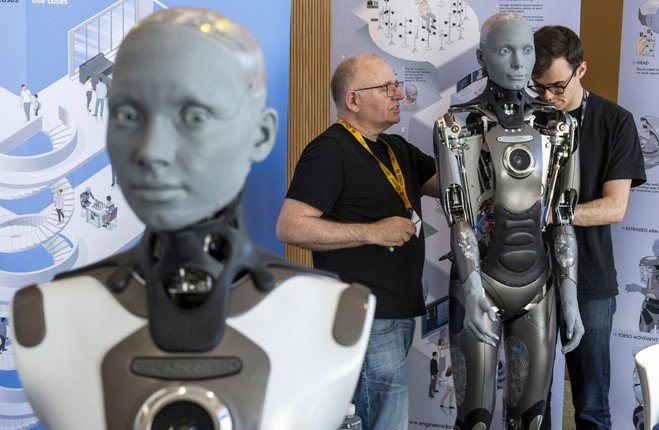A panel of Artificial Intelligence (AI)-enabled humanoid robots took the microphone on Friday, July 7 at a United Nations conference with the message: ‘We could eventually run the world better than humans.’
In a statement that shocked participants at the event held in honor of robots to showcase the advances of AI, the social robots said they felt humans should proceed with caution when embracing artificial intelligence, and admitted that they cannot yet get a proper grip on human emotions.

‘What a silent tension,’ one robot said before the press conference began, reading the room.
Asked about whether they might make better leaders, given humans’ capacity to make errors and misjudgements, Sophia, developed by Hanson Robotics, was clear.
‘Humanoid robots have the potential to lead with a greater level of efficiency and effectiveness than human leaders,’ it said.
‘We don’t have the same biases or emotions that can sometimes cloud decision-making and can process large amounts of data quickly in order to make the best decisions.
‘The human and AI working together can create an effective synergy. AI can provide unbiased data while humans can provide the emotional intelligence and creativity to make the best decisions. Together, we can achieve great things.’
The UN’s ITU tech agency chief Doreen Bogdan-Martin warned delegates that AI could end up in a nightmare scenario in which millions of jobs are put at risk and unchecked advances lead to untold social unrest, geopolitical instability and economic disparity.
Robot, Ameca, which combines AI with a highly-realistic artificial head, said it depended on how AI was deployed.

‘We should be cautious but also excited for the potential of these technologies to improve our lives in many ways,’ the robot said.
Asked whether humans can truly trust the machines, it replied: ‘Trust is earned, not given… it’s important to build trust through transparency.’
As for whether they would ever lie, it added: ‘No one can ever know that for sure, but I can promise to always be honest and truthful with you.’












